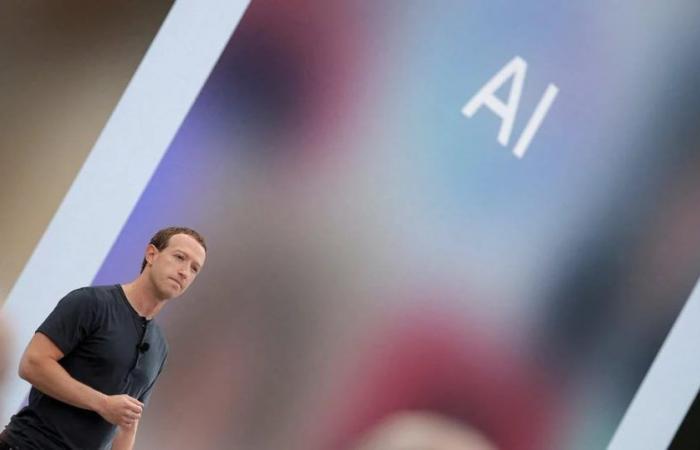Mark Zuckerberg, CEO of Meta, revealed that the company is preparing to soon launch its prototype of holographic glasses, which he says cause a sensation of “vertigo.”
In an interview with content creator Kallaway, Zuckerberg also expressed his disagreement with the tech industry’s approach to developing artificial intelligence. Unlike Google and OpenAI, Zuckerberg argues that there should be multiple AIs available so that people can choose the one that best suits their individual needs.
Meta is almost ready to present a prototype of its holographic glasses. “Everyone I’ve shown it to so far is like… a dizzy reaction,” said Zuckerberg, who explained that Meta also wants to create a fully holographic augmented reality.
Holographic glasses are devices that allow users to see three-dimensional images in the real space around them. These glasses use advanced technology to project holograms and virtual figures that appear to be physically present in the user’s environment.
The Facebook founder did not provide any further details about the work that Meta is doing on these glasses, but it is likely that he will present a preview at Meta Connect, an event that usually takes place in September of each year in which Meta is in charge of showing its latest advances related to software and hardware.
At Meta Connect 2023, it presented Meta Quest 3, a virtual reality headset that costs $499.
In the same interview, Zuckerberg criticized the vision of other companies competing with Meta that are developing artificial intelligence models.
“Many other companies are building a single main artificial intelligence to interact. Google’s Gemini and OpenAI’s ChatGPT,” the businessman and programmer exemplified.
“I’m very disheartened when people in the tech industry talk about building this one true AI. It’s almost like they think they’re creating God or something,” Zuckerberg said in his criticism of his colleagues.
“This isn’t the kind of thing you build just once. We believe people want to interact with more people and businesses, and you need different AIs that reflect these diverse interests.”
At this point, he took the opportunity to declare himself a supporter of open source artificial intelligence, which refers to AI systems whose source code is publicly available.
Which means that anyone can access, use, modify and share the code under the terms of an open license. This encourages collaboration and shared development of advanced AI technologies.
For example, Meta has the Llama 3 AI model which is open source. Users can download it through its website and create applications with functions powered by artificial intelligence.
Zuckerberg said that an open source AI model “unlocks and unleashes as many people as possible to try different things.”
Meta’s latest model is Llama 3, which is open source and features language understanding and the ability to perform complex tasks such as translation and dialogue generation.
Meta notes that it has improvements in scalability and performance, as it “effectively” handles multifaceted tasks. Its post-training processes “significantly reduce error rates and improve response consistency.”
The company uses Llama 3 on Meta AI, a virtual assistant found on Instagram, Facebook and WhatsApp. Users can interact with it as if it were another chat: Meta AI answers questions of any kind and generates images.
However, one of the main concerns is the data it uses to respond to user requests. Starting June 26, 2024, Meta feeds its AI with posts from Instagram and Facebook users.
This means that Meta can now use a birthday video uploaded to Facebook as another piece of data for its artificial intelligence.
It should be added that this project was stopped in the European Union because the Irish Data Protection Commission (DPC) showed its concern. However, the Meta plan moves forward in the other regions of the world.






